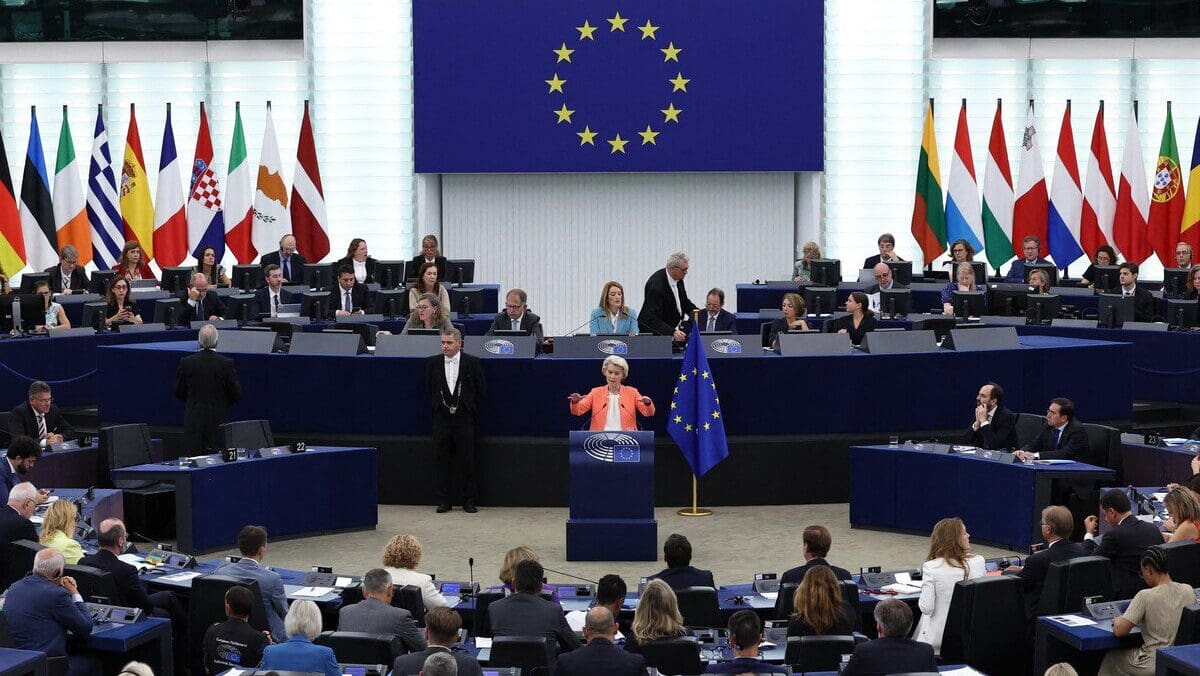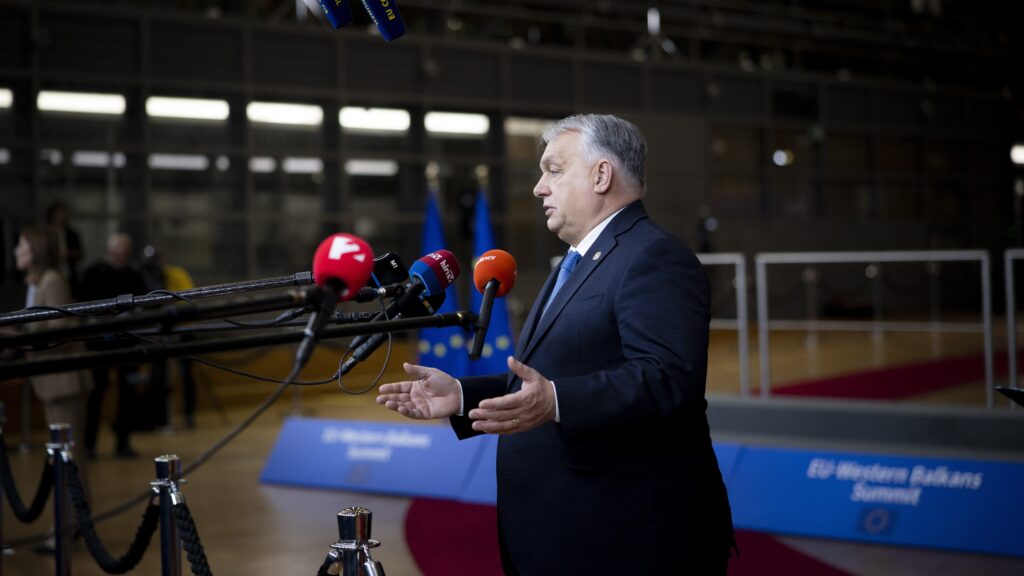The following is a translation of an article written by Réka Zsuzsánna Máthé, a research fellow at the Europe Strategy Institute of the University of Public Service, originally published on the Five Minutes Europe blog of Ludovika.hu.
After three months, another motion of no confidence was passed against European Commission President Ursula von der Leyen.
Following Monday’s debate, the European Parliament will vote today, on 9 October on the latest two motions of no confidence against the President of the European Commission. The initiators are at opposite ends of the political spectrum, with the Patriots for Europe and the European United Left submitting motions of no confidence. Unsurprisingly, there are commonalities between their complaints.
The right believes that various measures taken by the Commission are undermining Europe’s competitiveness, citing the forced green policies developed by the Commission in the European Green Deal package. They object to the financial scandals associated with the President, the lack of transparency in the management of EU affairs, and her decisions that exceed her authority. They resent the failure to curb illegal migration and the threats to freedom of expression.
In addition, they sharply criticize the Mercosur and US–EU deals. They believe that these steps undermine national sovereignty, threaten European agriculture and various industries, and weaken the EU as a whole. They claim that the Commission is neglecting the interests of European citizens and failing to address the most important challenges.
The main problems identified in the left-wing motion of no confidence relate to the European Commission’s handling of international and trade issues. They criticize the Commission for accepting a US–EU trade deal without a proper mandate and for the fact that the terms of the agreement violate European interests. They similarly condemn the proposed EU–Mercosur agreement, believing that it will put European farmers, the environment, and public health at a disadvantage.
The left also objects to the European Green Deal, but unlike the right, they believe that it does not go far enough to protect the environment and prevent the effects of climate change. In addition, they object to the fact that while the EU imposed economic restrictions on Russia, the Commission failed to do the same with Israel in response to its military actions in Gaza, which they believe reflect serious violations of humanitarian law and an inadequate response to genocide. Furthermore, the left also finds transparency and accountability lacking.
When political parties on opposite sides of the parliamentary spectrum voice sharp criticism or table a motion of no confidence against a politician belonging to the centrist party family, it is easy to conclude that ‘extremist’ groups are fighting against sensible, calm, and balanced policies. This may be true in some cases, but a closer look reveals a much more complex picture, especially in the European political arena.
‘The once stable structures operated by centrist parties are increasingly unable to solve the social challenges of our time’
In Western Europe after the Second World War, the much-needed political stability was provided by centrist parties, typically a social democratic or Christian democratic party or a people’s party, which had a fundamental agreement on the most important issues facing society. The same structure was replicated in the European Parliament, with its ‘grand coalition’ between the Party of European Socialists and the European People’s Party.
However, stability does not only have advantages but also disadvantages: in the event of dissatisfaction, even if voters cast their ballots for the other dominant party, policy directions did not change significantly, which further increased voter frustration. With the advance of globalization and EU integration, these challenges have multiplied, and the once stable structures operated by centrist parties are increasingly unable to solve the social challenges of our time.
Over the past decade and a half, we have witnessed various parties labelled as radical gradually gaining ground not only in Europe but also globally. The breeding ground for these new parties is voter dissatisfaction with the old centrist parties and their inadequate responses to the latest social challenges. It seems that the sharp political divide between traditional right-wing and left-wing parties is beginning to blur, and a new political divide is emerging, drawing a sharp line between national and supranational interests. Centrist forces are closer to representing supranational interests, which can be necessary and useful in certain cases. At the same time, they should not forget about local or national interests, as most public affairs are decided at a lower level, at the local community level, by the majority of society.
‘Political parties emphasizing radically different values alike resent the disregard for local, national, or even European interests’
The content of the two motions of no confidence tabled against Ursula von der Leyen points exactly to this. Political parties emphasizing radically different values alike resent the disregard for local, national, or even European interests, as well as the inadequate representation of the interests of the population vis-à-vis those of North and South America.
In other words, the main cause of the complaint is the representation of supranational interests, which seem distant and intangible, over local community interests, which has enabled the political right and left to take action simultaneously. All this highlights the political contradictions between local, national, European, and supranational or global interests. The motion of no confidence draws attention to the identified shortcomings, mobilizes opposition forces, and influences public opinion.
Nevertheless, it is unlikely that the European Parliament will withdraw its confidence from the Commission President on Thursday. For the motion of no confidence to be adopted, two-thirds of the 719 MEPs would have to vote in favour, but a significant number of representatives from the centrist Progressive Alliance of Socialists and Democrats and the European People’s Party, which constitute the largest political forces, would also have to support the motion.
Although the representatives of the centrist parties are increasingly dissatisfied with the Commission President, most of them believe that an alternative would be ‘even worse’. In other words, even the centrist parties do not wholeheartedly support the work of the current President of the European Commission, but they have not yet found a more suitable candidate. Perhaps it would be worth advertizing the position more broadly...
Related articles:
Click here to read the original article.







